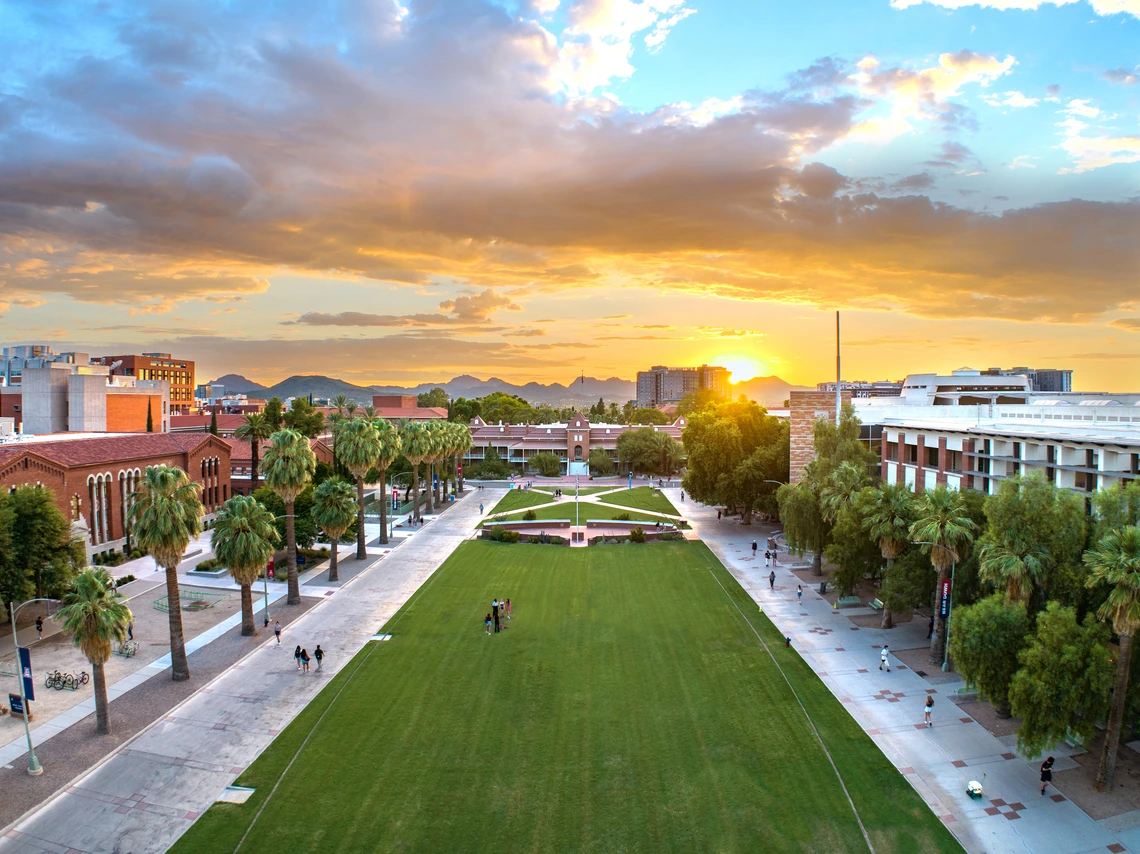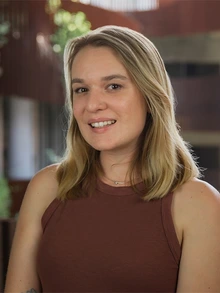New Internship Course Lets Students Contribute to On-Campus Sustainability Efforts

This fall, the University of Arizona is launching a new opportunity for students to turn their interest in sustainability into real, hands-on experience.
The Sustainability Pathways Internship is a 2-credit, year-long internship course (ENVS 397S) designed to give students the chance to contribute to meaningful sustainability projects on campus while developing professional skills that can be applied in any field.
Led by Office of Sustainability experts at the U of A, the course will be co-taught by faculty advisor Neha Gupta, also an assistant research professor with the Arizona Institute for Resilience; Kenzie Jackson, campus and community outreach coordinator; and Ilse Rojas-Hamilton, associate director.
The goal of the course-based internship is to involve students more directly in the implementation of the university’s Sustainability and Climate Action Plan through hands-on, project-based experiences. Additionally, the internship seeks to connect students with sustainability programs and opportunities on campus to build longer-term “pathways” for students to engage in sustainability efforts and programs.
Through this experience, students will not only learn what it means to work in sustainability but also be part of making real, positive changes on campus that help better our community and care for the environment.

Kenzie Jackson, Campus & Community Outreach Coordinator at the U of A's Office of Sustainability.
“We just wanted to have more student involvement in the work we’re doing,” Kenzie Jackson, campus and community outreach coordinator for the Office of Sustainability, said. “This internship helps us move forward with the Climate Action Plan while also supporting professional development for students.”
ENVS 397S is a structured course that includes academic credit, a regular class meeting time, and a strong emphasis on project planning, communication, and career readiness – all designed to help students develop skills they can use in professional settings.
Throughout the year, students will work on projects tied to the university’s sustainability and climate goals. Whether the focus is on campus engagement, climate education, or operational improvements, students will be able to contribute to work that feels meaningful and relevant to their interests.
In addition to the project work, students will participate in weekly workshops that support skill-building in areas like resume writing, public speaking, collaboration, and project reporting. The course also includes guest speakers from across campus and the Tucson community who will share their experience working in sustainability and related fields.
“We want students to walk away with practical skills they can use anywhere, not just in sustainability,” Jackson said. “It’s about preparing students to lead, whatever field they end up in.”
The course is open to all students, regardless of major or previous experience. There are no prerequisites. Whether students are studying environmental science, public health, engineering, art, business, or anything in between, ENVS 397S is for any Wildcat who cares about sustainability and wants to make a difference on campus.
“Sustainability isn’t just for people who want to work in sustainability,” Jackson said. “It affects every field. We want to see these values show up in all colleges, from business to the arts.”
ENVS 397S will meet on Wednesdays from 4 to 5:45 p.m. throughout the fall and spring semesters. Students can enroll in the course by searching ENVS 397S in UAccess.
If interested, students are asked to enroll two weeks before the start of the fall semester. The Office of Sustainability hopes students will see this internship as a chance to do meaningful, hands-on work that connects their education to real-world challenges. It is an opportunity to build experience, gain confidence, and directly help lead the university toward a more sustainable future.
For more information, visit the Office of Sustainability’s website or contact Kenzie Jackson at makenziejackson@arizona.edu.
